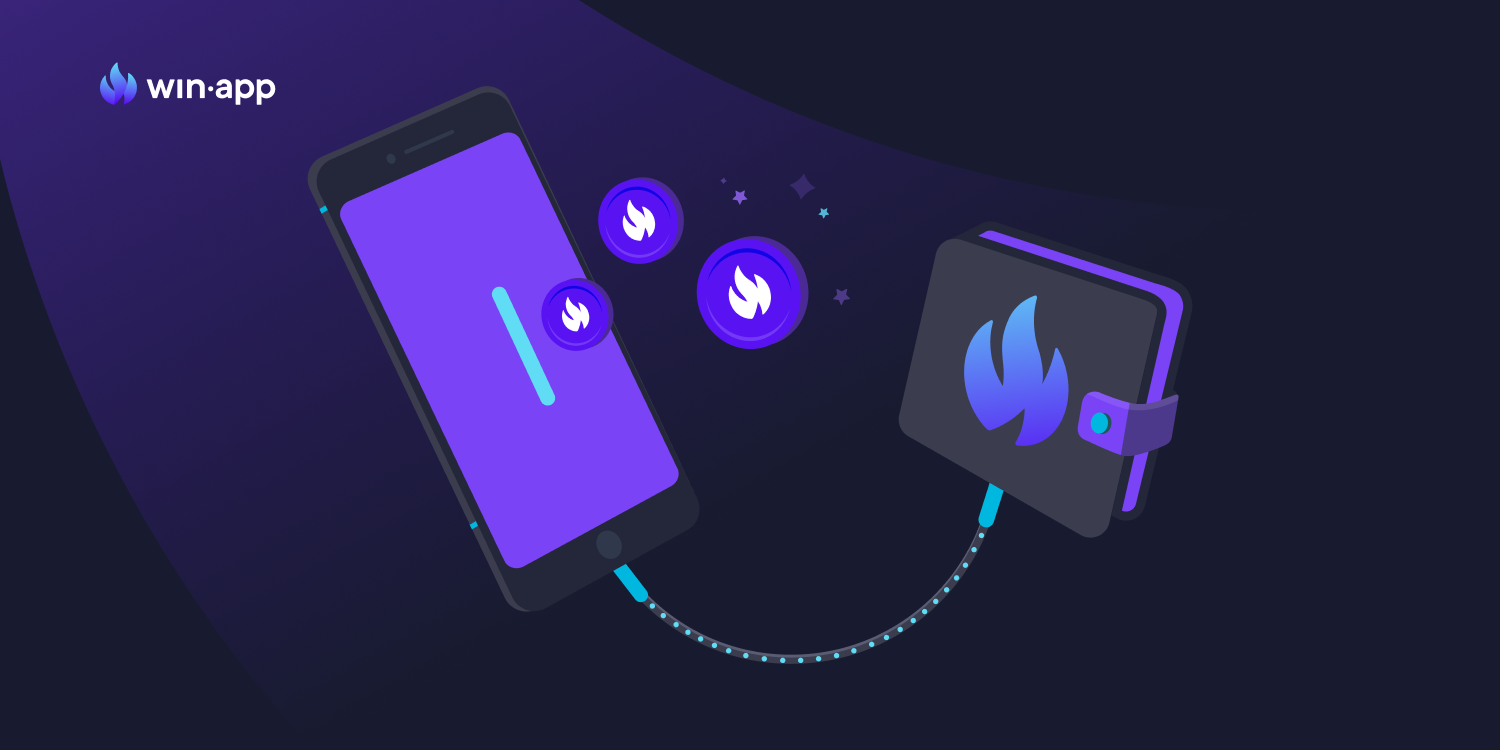Beginner's Guide to Getting Started With Crypto Wallets
We know you’re eager to dive into those Win.app play-to-earn games and show the world how it’s done. Before you start, you’ll need a wallet to store your tokens and all the awesome NFTs and crypto rewards you’re going to earn.

We know you’re eager to dive into those Win.app play-to-earn crypto games and show the world how it’s done. Before you start, you’ll need a wallet to store your tokens and all the awesome NFTs and crypto rewards you’re going to earn.
If you’re not familiar with crypto wallets, the amount of information on the subject might feel overwhelming. That’s why we’ve decided to tackle this topic and guide you through its different features.
What are crypto wallets?
Cryptocurrency wallets are apps that allow you to store and retrieve all of your digital assets. However, a crypto wallet doesn’t keep your digital currency the same way your physical wallet stores your cash. It actually generates a unique address that can be used as an identifier to locate your assets on the blockchain.
Basically, your wallet is the interface between you and different blockchains, through which you can monitor your assets and trade them. As such, private and public keys are a vital part of your wallet.
What’s the difference between private and public keys?
You can compare the public key of a crypto wallet with the bank account number you have at a certain bank. The public key is the wallet address that you can share with other people to receive crypto payments from them.
By the same analogy, the private key is similar to your credit card's PIN. This key is used to lock your crypto assets and tokens securely and should never be shared with anyone else.
Custodial vs. non-custodial wallets
Depending on the cryptocurrency you're interested in, there are two types of wallets that you can use. Sometimes the choice can be yours, but most of the time, the wallet you'll need is based on what the specific crypto you're purchasing is compatible with.
It all boils down to who has control over your private keys.
Custodial wallets
With custodial wallets, you give control of your private keys to a third party. It requires you to trust another party, usually a crypto exchange, to secure your funds and return them when you want to trade, for example. When it comes to a custodial wallet, you always have to keep in mind the following: not your keys, not your coins. You are not in complete control and ownership of your crypto assets, which can be a disadvantage.
On the other hand, this type of wallet offers users greater ease of use. You don't have as much responsibility as with non-custodial wallets. If you forget your password, you'll most likely be able to reset it and regain access to your funds. In terms of security, custodial wallets can be more vulnerable to hackers, as they always require an internet connection.
Non-custodial wallets
A non-custodial wallet, also known as a decentralized wallet, gives you complete control over your private keys and, therefore, of your digital assets. It eliminates the need for a third party between you and your crypto.
This type of wallet can be browser-based, like software installed on your mobile phone, or it can come in the form of a hardware device. A hardware wallet usually looks like a USB device with a screen and buttons. These wallets are more secure regarding ownership of funds and less prone to cyber threats.
On the other hand, you are solely responsible for your private keys. If you forget your passwords and don't have a backup procedure in place, you risk losing access to your assets. Users of non-custodial wallets must have at least a basic know-how of how to back up and restore their wallets. The backing-up procedure usually involves a 12 to 24 words recovery phrase, or seed phrase, generated when you do the initial set-up of your crypto wallet. You'll have to write down this recovery phrase, store it in a secure location, and not share it with anyone under any circumstances.

If, after reading all about crypto wallets, you're wondering what type of wallet you'll be using to play-to-win on Win.app, the answer is a proprietary non-custodial wallet, our own Win DeFi Wallet. We firmly believe that both the keys and the coins should be yours and only yours.
Let’s stay in touch:
? Twitter:https://twitter.com/winplatform
? Discord: https://discord.gg/pUJWEEKTpr
? Telegram:https://t.me/winplatform
